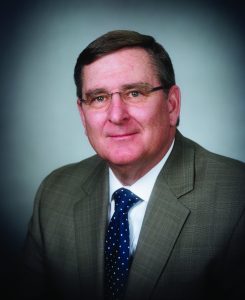The week of February 13-17, 2023, will go down as a very important time for the communities of the Permian Basin and the oil and gas industry of the United States. The U.S. House Natural Resources Committee held a subcommittee hearing focusing on how Federal Energy Production Supports Local Communities at the University of Texas Permian Basin’s Engineering Building on February 13, 2023. This hearing was followed by one conducted by the U.S. House Energy and Commerce Committee on February 16, 2023 at the Barbara and George HW Bush Convention Center. This second hearing focused on American Energy Expansion: Improving Local Economies and Communities’ Way of Life. Among those participating in both of these hearings was August Pfluger (one of the Permian Basin’s own Congressmen and a committee member), as well as the respective committee chairs Bruce Westerman (R-AR) and Cathy McMorris Rodgers (R-WA), joined by well over a dozen other House members from both sides of the aisle.
The PBPA and its members have been shouting from the rooftops about how important oil and gas production from the Permian Basin is to the security of Texas, New Mexico, our nation, and our allies. It was great for our region to have the opportunity to convey that message in our own backyard directly to the Congressmen and Congresswomen that were in attendance at these committee hearings. The invited witnesses who presented testimony at these hearings were very well spoken and I was particularly proud of Midland Mayor (and current PBPA board member) Lori Blong and IPAA Chairman (and former PBPA Chairman) Steven Pruett. Both Mayor Blong and Mr. Pruett conveyed the importance of the energy we produce in the Permian Basin and how much the oil and gas landscape has changed here over the last decade.
While the Permian Basin has been producing hydrocarbons in commercial quantities for over a hundred years, the witnesses, trying to help attendees truly understand the Permian’s importance today, recounted the amazing story that really began about a decade ago when the Permian Basin was producing around a respectable one million barrels of oil a day. As a result of our unconventional reservoir development and with most wells being drilled horizontally, followed by fracture stimulation techniques, the greatest oil field in North America is, as you know, now producing 5.5 million barrels per day. A secure and reliable supply of energy is what we have to offer, produced in the cleanest and most environmentally friendly way anywhere in the world. We have increased production five-fold while continuing to reduce emissions. This is the power of the Permian Basin and its workers. We are so fortunate to have such an abundant resource that resides several miles under our West Texas and Southeast New Mexican landscape. While PBPA has delivered this message in many different forums, to many different recipients, this was the first time such a message was delivered to two Congressional committees in the friendly confines of the Permian Basin within the same week.
The conversations at the Congressional hearings in the Permian Basin underscored the point that what we need is regulatory certainty, investment into our communities and work forces, and more infrastructure enhancements, such as more pipelines to get our increasing oil and gas volumes to market. Perhaps most importantly, we need cooperation from our government, not roadblocks and uncertainty. We need an energy policy that is supportive of all energy sources to allow for human flourishing around the world, not just the flavor of the day sources—which have resulted in inconsistent power generation and higher costs not just for energy, but goods and services. The idea that we can magically do without oil and gas for the foreseeable future is not realistic. What we do in the Permian Basin is not magic; it has come by way of hard work, dedication, and innovation. The resources we produce in the Permian Basin have powered our past, they currently power our present, and they can power our future. A question that we hope those members of Congress who visited the Permian Basin might now be asking others in back in Washington, D.C. is, why not harness the power of the Permian?










